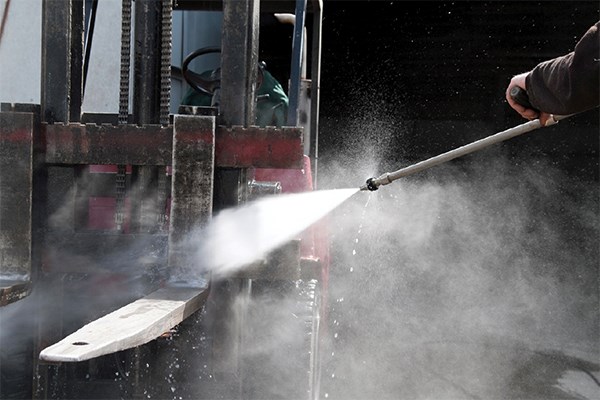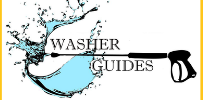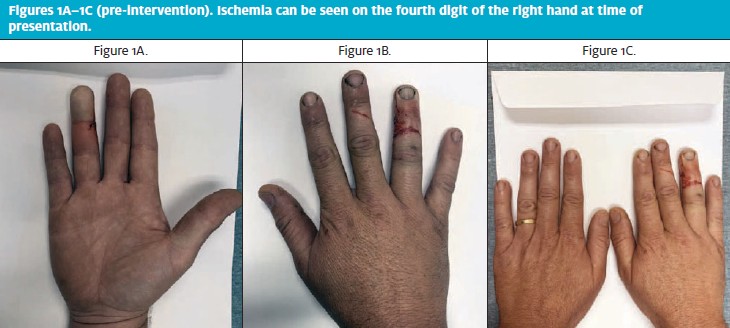When it comes to pressure washer injury, antibiotics are often prescribed in order to prevent infection. This is because the high-pressure water can force bacteria and other contaminants deep into the skin, which can lead to serious infections. While antibiotics can be effective at preventing these infections, they are not always necessary.
In some cases, simply keeping the wound clean and properly bandaged may be enough to prevent an infection from developing.
If you’re like most people, you probably don’t think much about pressure washers. But if you’ve ever been injured by one, you know that they can be powerful tools that can cause serious injuries. That’s why it’s important to know how to treat a pressure washer injury, and when to seek medical attention.
Pressure washers use high-powered water jets to remove dirt, grime, and other build-up from surfaces. While this makes them ideal for cleaning driveways and decks, it also means that they can cause serious injuries if not used properly. The most common type of injury from a pressure washer is a laceration, which is a deep cut caused by the jet of water.
Pressure washers can also cause burns, contusions, and fractures.
If you are injured by a pressure washer, it’s important to seek medical attention right away. If the injury is minor, such as a small cut or burn, you may be able to treat it at home with over-the-counter medications and first aid supplies.
But more serious injuries will require professional medical treatment. Once your injury has been treated, be sure to follow your doctor’s instructions for care and recovery. And if you’re using a pressure washer in the future, be sure to take all necessary safety precautions to avoid another accident.
How to Treat Pressure Washer Injury?
If you’re reading this, then you or someone you know has probably been injured by a pressure washer. Pressure washers are powerful tools that can make quick work of many outdoor cleaning tasks. But they can also be dangerous if not used properly.
Each year, there are thousands of injuries and even deaths associated with pressure washers. Most pressure washer accidents occur when the operator loses control of the hose or nozzle. The high-pressure stream of water can cause serious injuries if it hits someone directly, or even worse if it deflects off a hard surface and strikes someone nearby.
In addition to the obvious risks associated with being hit by a stream of water at high pressure, there is also the risk of being electrocuted if the pressure washer is plugged into an electrical outlet. So what should you do if you or someone else is injured by a pressure washer? First, try to stop the flow of water by either turning off the power at the source or closing the valve on the hose.
If possible, move any victims away from the area where they could be hit by flying debris or other hazards. Once everyone is safe, call for medical help and let them know that there may be electrical hazards present. If possible, provide first aid until help arrives.
Pressure washers can be extremely useful tools, but they need to be used carefully to avoid injury. Be sure to read all instructions before using one and never point the nozzle at anyone – even joking around could lead to tragedy. By following these simple safety tips, you can help prevent accidents and keep everyone safe while enjoying all that a pressure washer has to offer!
Pressure Washer Injury to Foot
Pressure washer injuries to the foot are not uncommon. In fact, every year there are thousands of people who end up in the hospital with this type of injury. The most common type of pressure washer injury to the foot is a laceration.
This can occur when the high-pressure water stream comes into contact with the skin. The result is a deep cut that can be very painful and may require stitches. If you have ever experienced a pressure washer injury to your foot, then you know just how serious it can be.
There are a few things that you can do to avoid this type of accident. First, always wear proper footwear when using a pressure washer. This means closed-toe shoes or boots that will protect your feet from the high-pressure water stream.
Second, be sure to hold the pressure washer nozzle away from your body and keep your feet out of range of the spray. Finally, never point the nozzle directly at someone else as this could cause serious injury or even death. If you do experience a pressure washer injury to your foot, it is important to seek medical attention right away.
Clean the wound thoroughly and apply pressure if bleeding occurs. If possible, elevate the injured foot to reduce swelling. You may also need to wrap the foot in an ACE bandage or similar product.
Once you have taken care of these immediate concerns, you can then focus on making sure that you get compensated for your injuries by filing an insurance claim or personal injury lawsuit against those responsible for causing your accident.
High-Pressure Water Injection Injury Symptoms
If you’ve ever been on the receiving end of a high-pressure water injection, you know just how painful it can be. The water pressure is so strong that it can actually cause tissue damage and even break bones. Unfortunately, these injuries are all too common, especially among construction workers and those who work in high-pressure environments.
Symptoms of a high-pressure water injection injury can vary depending on the severity of the injury. In some cases, victims may only experience pain and swelling at the site of the injury. More serious injuries may result in bruising, nerve damage, muscle weakness, and even paralysis.
If you suspect that you or someone you know has suffered a high-pressure water injection injury, it’s important to seek medical attention immediately. These injuries can be extremely serious and may require surgery or other intensive medical treatment. Don’t delay in getting the help you need – contact a qualified medical professional today.
Pressure Washer Injury Finger
If you’re using a pressure washer, you need to be careful to avoid injury. One of the most common injuries is a finger injury.
Pressure washers use high-pressure water to clean surfaces.
The water is forced through a small nozzle at a very high speed. This can create a lot of force, and if your finger gets in the way, it can be injured.
Finger injuries from pressure washers are usually cuts or bruises.
In more severe cases, the finger can be broken or even amputated. It’s important to keep your fingers away from the nozzle and never point the nozzle at anyone else.
If you do injure your finger with a pressure washer, it’s important to seek medical attention right away.
Pressure washer injuries can be very serious, so don’t take any chances.
Pressure Washer Injury Hand
If you’re using a pressure washer, it’s important to be aware of the potential for injury. The high-pressure stream of water can cause serious damage to your skin and tissue, so it’s important to take precautions.
Wearing gloves and long sleeves is a good start, but if you’re going to be using the pressure washer for an extended period of time, it’s also a good idea to wear eye protection.
A full face shield is ideal, but at the very least, you should wear safety glasses or goggles.
It’s also important to keep the nozzle at least three feet away from your body. The further away you can hold it, the better.
And if you do accidentally get hit with the stream of water, be sure to seek medical attention right away as even low-pressure streams can cause serious injuries.
Minor Pressure Washer Injury
If you’re using a pressure washer, it’s important to be careful to avoid injury. Pressure washers are powerful tools that can easily cause serious injury if not used properly.
One minor pressure washer injury that can occur is called “pressure Washer Injection.”
This happens when water is forced under high pressure into the skin, usually through a small cut or puncture wound. The water can cause tissue damage and infection. Symptoms of pressure washer injection include pain, swelling, redness, and bruising at the site of the injury.
If you think you may have suffered a pressure washer injection, it’s important to see a doctor immediately for treatment.
Another minor injury that can be caused by pressure washers is called “hydrofluoric acid burns.” These Burns occur when hydrofluoric acid, which is found in some pressure washer detergents, comes into contact with the skin.
Hydrofluoric acid burns are extremely painful and can lead to permanent scarring. If you think you may have come into contact with hydrofluoric acid, it’s important to flush the area with water immediately and then seek medical attention.
If you’re using a pressure washer, it’s important to take precautions to avoid these minor injuries.
Be sure to wear proper clothing and safety gear, including gloves, goggles, and long pants and sleeves. Keep your hands away from the nozzle while the machine is running, and never point the nozzle at anyone else.

Credit: www.emra.org
How Do You Treat a Pressure Washer Wound?
If you’re unfortunate enough to receive a pressure washer wound, the first thing you should do is stop the bleeding. Clean the wound with soap and water and apply pressure to it with a clean cloth. If the bleeding doesn’t stop, seek medical attention immediately.
Once the bleeding has stopped, you can start treating the wound at home. Apply an antibiotic ointment to help prevent infection and cover the wound with a sterile bandage. Keep the bandage in place for at least 24 hours – longer if it gets wet or dirty.
Change the dressing daily and continue to monitor the wound for signs of infection, such as redness, swelling or pus. If you notice any of these symptoms, see your doctor right away. With proper care, most pressure washer wounds will heal without complications within a week or two.
How Do You Treat an Injection Injury?
Assuming you are referring to a needle stick injury:
If the person who has been stuck is known to have HIV, Hepatitis B or C, or any other blood-borne pathogen, they should go to the hospital immediately and start post-exposure prophylaxis (PEP). PEP must be started within 72 hours of exposure and consists of antiretroviral drugs.
If the source of the stick is unknown, the person should still go to the hospital as soon as possible. They will likely receive a course of PEP as well as tests for HIV, Hepatitis B and C.
In both cases, the wound should be washed with soap and water for at least 5 minutes.
If available, an antiseptic like iodine can be used. The skin around the wound should then be cleaned with alcohol.
How Do You Treat a High-Pressure Injection?
A high-pressure injection is a medical treatment that involves injecting a liquid into the body at a very high pressure. This type of injection is usually done with a syringe, and the liquid can be anything from medication to water. High-pressure injections are often used to treat conditions such as arthritis, tendonitis, and bursitis.
They can also be used to deliver medications directly to the affected area, which can help to reduce pain and inflammation.
What is High-Pressure Injection Injury?
High-pressure injection injuries are a type of injury that can occur when high-pressure fluids are injected into the body. These types of injuries can be very serious and even life-threatening. High-pressure injection injuries can occur during certain medical procedures, such as intravascular injections or IV infusions.
They can also occur if someone is accidentally injected with a high-pressure fluid, such as during an IV start procedure. High-pressure injection injuries can cause severe damage to the tissues and organs, and can even lead to death. Early diagnosis and treatment is essential for the best possible outcome.
Interview with Ryan Thomas – Injection Injury
Conclusion
If you’re pressure washing your house and you get injured, you may be wondering if antibiotics are the right treatment. The answer is maybe. If the injury is superficial, like a cut or scrape, then antibiotics are probably not necessary.
But if the injury is more serious, like a deep cut or puncture wound, then antibiotics may be recommended. Be sure to consult with your doctor to determine the best course of treatment for your specific injury.

